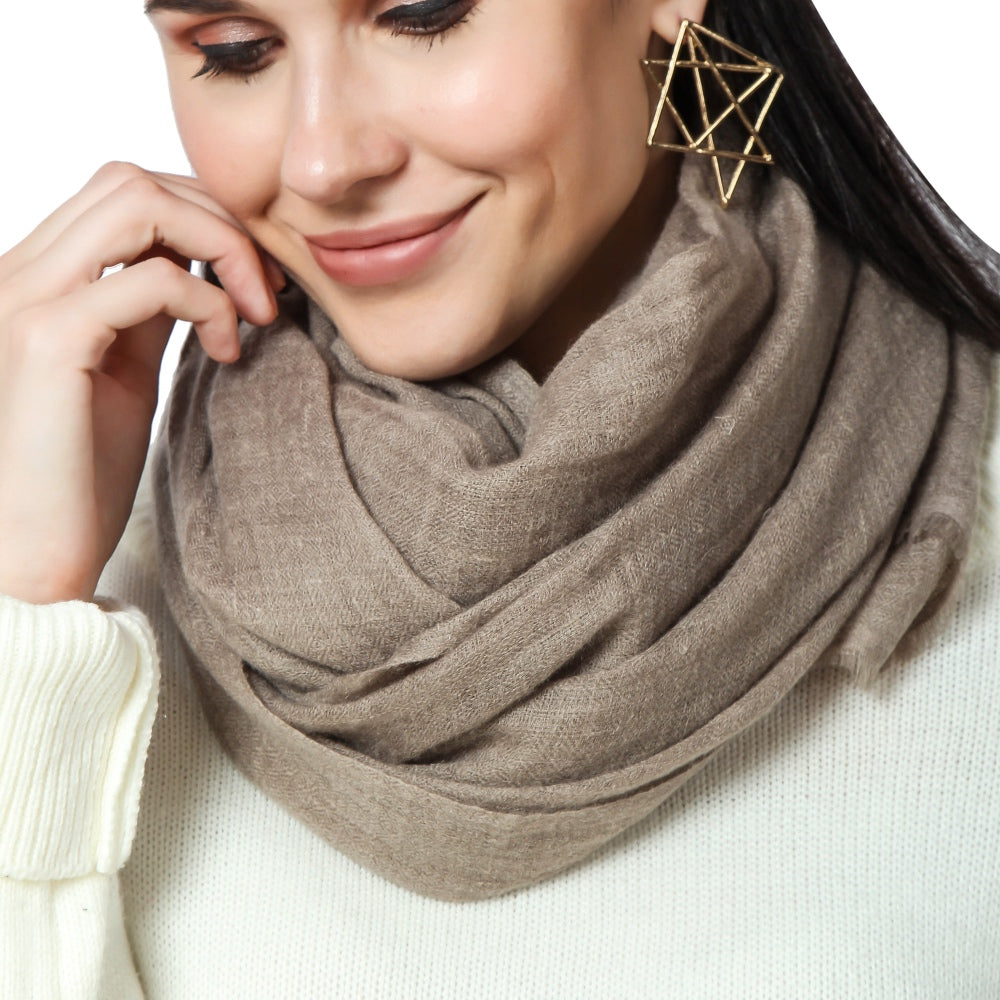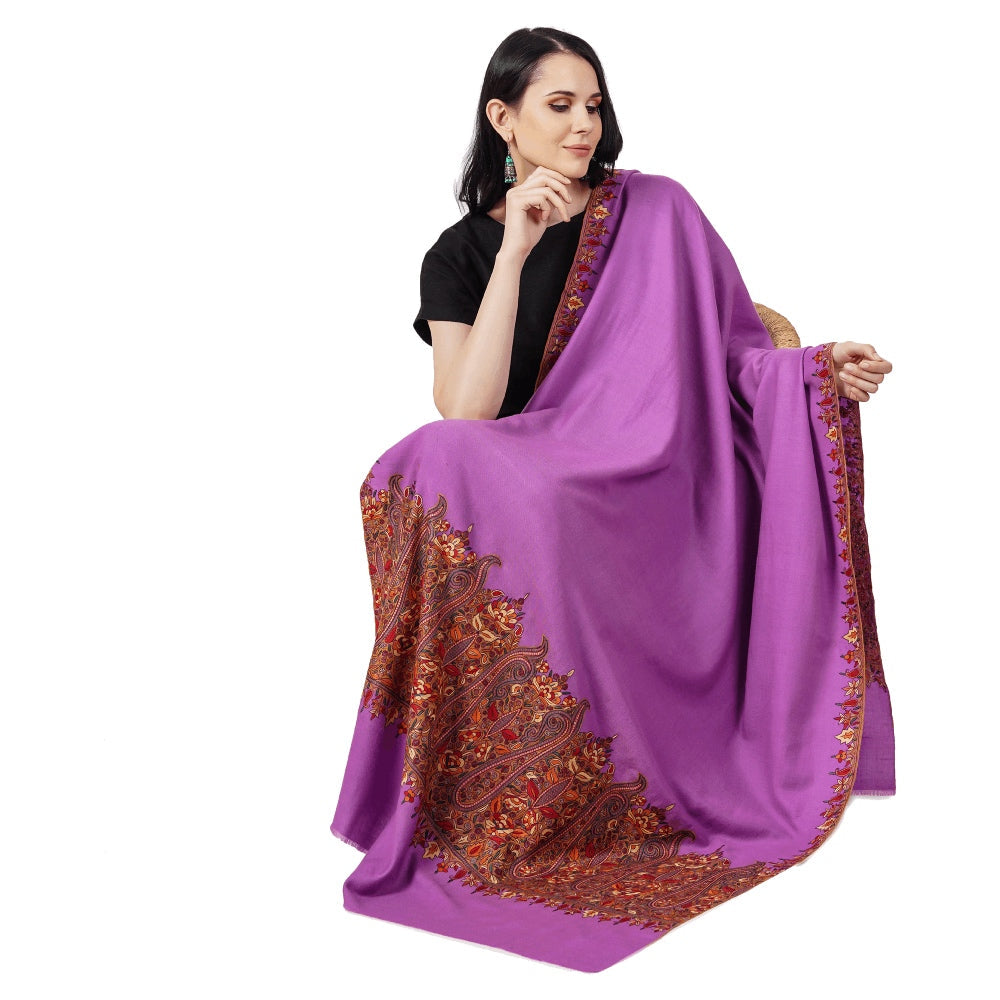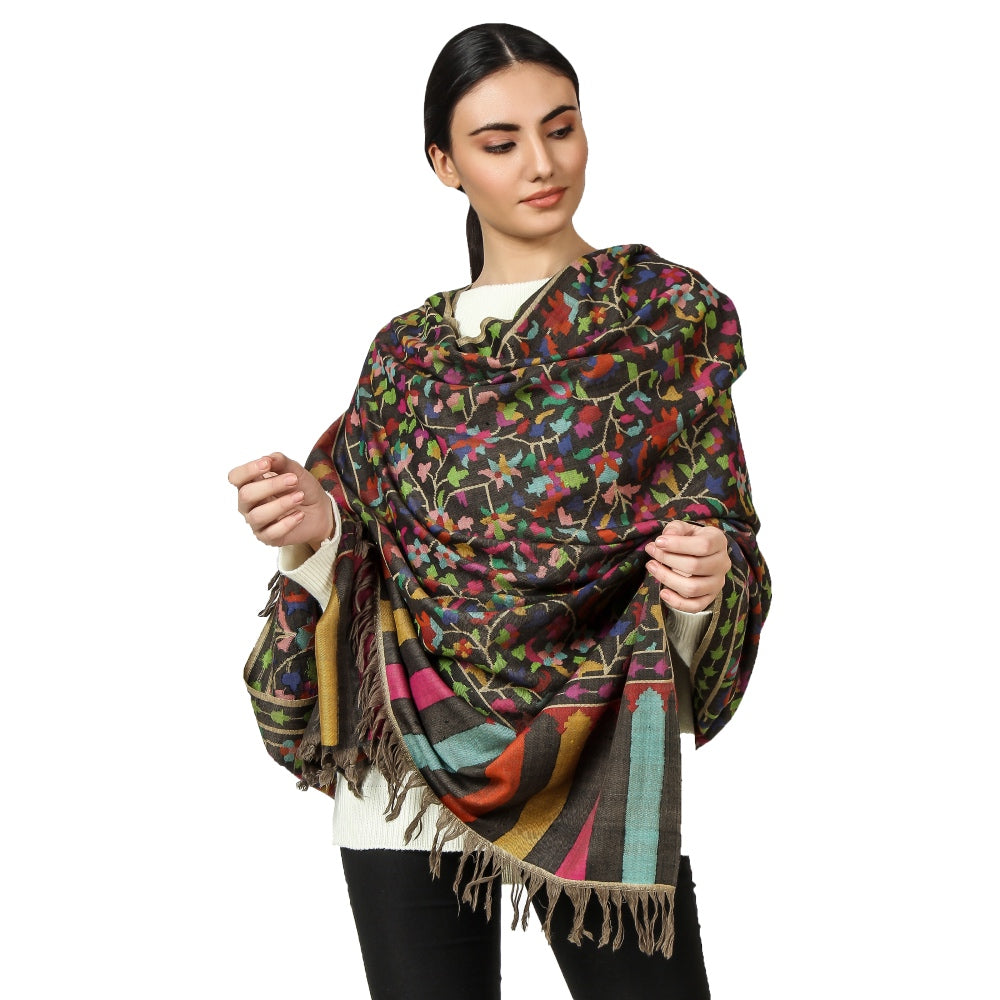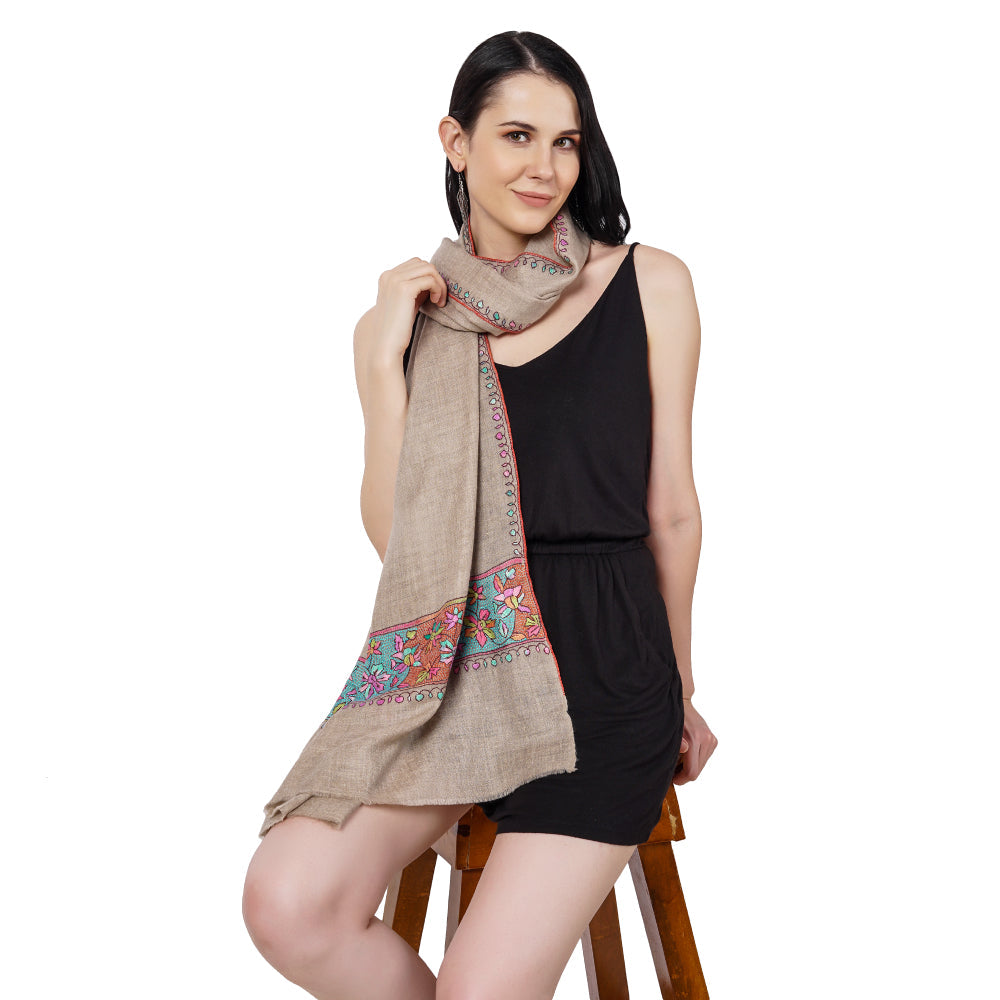
Pure Pashmina - Myths and Facts
Share
Pure Pashmina - Myths and Facts
When it comes to luxury fabrics, few are as revered and celebrated as Pashmina. This age-old craft is treasured for its incredible warmth, softness, and unmatched elegance. Yet, over the years, numerous myths have surrounded Pashmina, leaving buyers confused about its authenticity, origins, and value. In this comprehensive guide, we’ll demystify Pure Pashmina by exploring some of the most common myths and the facts behind them. Let’s uncover the truth about this remarkable fabric.
1. What is Pure Pashmina?
Before we dive into myths and facts, it’s essential to understand what Pure Pashmina actually is. Pashmina refers to a type of fine cashmere wool that comes from the undercoat of the Changthangi goat, which is native to the Himalayan regions of India, Nepal, and Tibet. The word "Pashmina" itself originates from the Persian word "Pashm," meaning "soft gold" or "soft wool."
The process of creating Pashmina is incredibly intricate, involving skilled artisans who hand-spin, weave, and embroider the fabric. This craftsmanship contributes to the fabric's luxurious reputation and high price point.

2. Myth: All Pashmina is the Same
One of the most common misconceptions is that all Pashmina products are identical in quality and texture. However, this is far from the truth.
Fact: Not all Pashmina is created equal. The quality of Pashmina depends on various factors, including the purity of the fiber, the region of origin, and the level of craftsmanship involved in production.
High-quality Pure Pashmina is extremely soft, warm, and lightweight, while lower-quality versions may feel coarser or less luxurious. Always ensure that you are buying from a reputable source to guarantee authenticity.
3. Myth: Pashmina is the Same as Cashmere
Many people believe that Pashmina and Cashmere are interchangeable terms. While both come from the same species of goat, there are crucial differences.
Fact: Pashmina is a subset of cashmere that comes from the finer undercoat fibers of the Changthangi goat, which are much softer and more delicate than typical cashmere.
The diameter of a Pashmina fiber is less than 16 microns, typically 12-14 Microns, making it finer than regular cashmere, which typically ranges between 19 and 22 microns. This difference in fineness gives Pure Pashmina its luxuriously soft feel and light texture.
4. Myth: Machine-Made Pashmina is Authentic
In the age of mass production, many so-called “Pashmina” products are machine-made. While they may look appealing, they lack the authenticity and craftsmanship of traditional Pashmina.
Fact: Genuine Pure Pashmina is always handcrafted. The weaving and embroidery of a true Pashmina shawl are done by skilled artisans, a process that has been passed down through generations.
Machine-made alternatives may be more affordable, but they don't offer the same quality, warmth, or elegance as handwoven Pashmina. When buying Pashmina, look for signs of handcrafting, such as slight irregularities in the weave, which indicate its authenticity.
5. Myth: Pashmina is Too Delicate to Be Practical
Another widespread belief is that Pashmina is so fragile that it cannot be used regularly.
Fact: While Pashmina is undeniably delicate, it is also incredibly durable when cared for properly. The key is to treat it with care. Proper maintenance includes gentle hand washing, avoiding harsh detergents, and storing the shawl in a breathable cotton bag to prevent moth damage.
When treated correctly, a Pure Pashmina shawl can last for decades, becoming a cherished heirloom passed down through generations.
6. Myth: Pashmina Comes in Only a Few Colors
Many people think that Pashmina shawls are available only in neutral or muted tones.
Fact: Pashmina shawls come in a wide array of colors and designs. The fabric is highly absorbent, allowing it to be dyed in vibrant hues, from deep jewel tones to soft pastels. Additionally, Pashmina shawls are often adorned with intricate hand-embroidery, adding even more variety to the range of available designs.
Artisans use traditional techniques to create stunning patterns, making each piece a unique work of art. Whether you prefer a classic monochrome shawl or one with elaborate embroidery, there’s a Pashmina out there for everyone.
7. Myth: Pashmina is Too Expensive and Overrated
The price of Pure Pashmina often raises eyebrows, leading some to think that it is overrated or overpriced. Fact: The cost of Pashmina is justified by the labor-intensive process of creating it and the rarity of the raw material. Remember, each shawl can take weeks, if not months, to produce, as artisans carefully hand-spin and weave the fibers.
Additionally, the Changthangi goats from which Pashmina is sourced live in harsh Himalayan conditions, and their undercoats are combed only once a year. This rarity, combined with the craftsmanship involved, makes Pure Pashmina a true luxury investment.
8. Myth: Pashmina is Only for Special Occasions
Another misconception is that Pashmina shawls should be reserved for weddings, parties, or other formal events. Fact: While Pashmina is undoubtedly elegant enough for special occasions, it is also versatile for everyday use. Thanks to its lightweight warmth, a Pashmina shawl can be a practical accessory in both winter and spring.
You can drape it over your shoulders on a cool evening or wrap it around your neck for a stylish look. Its timeless appealensures it never goes out of fashion, making it a staple in any wardrobe.
9. Myth: All Pashmina is Eco-Friendly
With sustainability becoming a significant concern, many believe that all Pashmina products are eco-friendly. Fact: While traditional Pashmina production has a lower environmental impact compared to synthetic fabrics, it’s essential to be mindful of the sourcing and dyeing processes. Ethical brands ensure sustainable practices, such as using natural dyes and supporting fair trade.
Always do your research and buy from eco-conscious brands that prioritize ethical production. Supporting these brands not only helps preserve the craft but also ensures that your Pashmina is truly sustainable.
10. How to Identify Genuine Pure Pashmina
Now that we've debunked some common myths, you may be wondering how to spot authentic Pashmina. Here are some key indicators:
- Burn Test: Genuine Pashmina will produce a burnt hair smell when burned, and the ash will be powdery. However, only perform this test if you have a small, inconspicuous piece to spare.
- Texture: Authentic Pashmina feels incredibly soft to the touch and warms up quickly when held.
- Certification: Reputable sellers often provide a certification of authenticity. Always request this when making a high-value purchase.
Conclusion
Pure Pashmina is more than just a fabric; it's a symbol of elegance, tradition, and unparalleled craftsmanship. While myths and misconceptions abound, the truth about Pashmina reveals a rich heritage and exceptional quality that make it worth every penny. Whether you’re looking to make a fashion statement or invest in a timeless piece, understanding the facts about Pashmina will help you make an informed choice.
Embrace the luxury, feel the warmth, and experience the magic of Pure Pashmina.




